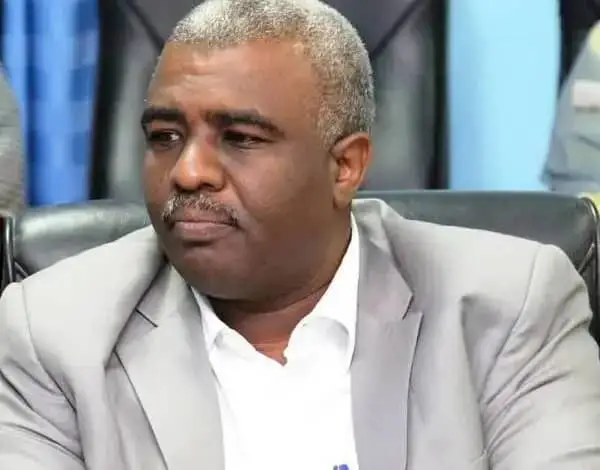There is no doubt that we all agree that the Parliament or National Assembly is the clearest expression of the organized national will. When it is absent, the voice of the people disappears, and the state becomes exposed to the possibilities of guardianship. The doors open to external dictates that seek to reshape the national decision according to their own standards. In this article, let us open this file.
The establishment of the Transitional Parliament was one of the most prominent entitlements of the Constitutional Document since its first version in August 2019. However, the years have passed and the Council has remained a postponed promise. Even after the amendment of the document in 2025 and the formation of a political committee headed by First Lieutenant General Shams al-Din Kabbashi, with the membership of First Lieutenant General Yasser al-Atta and Abdullah Yahya, the project did not see the light of reality.
The committee, which began its meetings with political forces, civil society organizations, and actors, suddenly evaporated without a final statement or clarification of the course of its work.
Although the amended document precisely defined the composition of the Parliament, ensuring the representation of the parties to the peace process and women, and set the membership limit at three hundred members, reality remained captive to balances. The Sovereignty Council and the Council of Ministers continued to exercise the duties of the interim legislative authority, while the state was managed by a simple majority in the absence of oversight and accountability. Thus, the absence of Parliament became a compounded dilemma: a dilemma in the engineering of internal governance and a dilemma in facing external pressures that found in this vacuum an entry point to impose their soft guardianship.
The existence of an effective Parliament is not merely a constitutional duty, but a political and strategic guarantee to safeguard the national decision. Every step related to negotiation or ending the war, and every sovereign decision that affects the fate of the country, requires a legitimate umbrella that protects decision-makers from regional and international blackmail.
Therefore, we must understand that the Parliament is not a rival to the executive authority, but rather its constitutional shield and source of safety. It is the wall on which it leans in the face of pressure and external extortion when the final word belongs to the homeland, not to the mediator.
Comparative experiences offer the clearest lesson: countries such as Egypt after 2013, Ethiopia during its internal crisis, and Algeria in times of transition managed to protect themselves against international blackmail through temporary or appointed parliaments that granted their leadership legitimate cover to make fateful decisions related to war, peace, and sovereignty.
Even in times of turmoil, those countries realized that having a legislative institution—even a transitional one—that expresses the people’s will is a thousand times better than a constitutional vacuum exploited by outsiders to advance their ambitions through bodies, no matter how efficient, that remain incapable of making critical decisions related to national security, for example.
From here, questions rise within the Sudanese scene: why has the establishment of Parliament been delayed at this particularly critical time? Are there external pressures or internal calculations preventing its birth? And why do the preparatory committees keep being announced only to vanish without a trace? Questions raised by the media and political elites as much as whispered by the public, for everyone realizes that the absence of Parliament means the absence of the national voice that should speak in the name of the people, not on their behalf.
In this context, the difference becomes clear between those inside Sudan and those abroad: the “Istanbuli people” and the “Cairene people,” and the people inside the country who live the war with all its bitterness and disgrace, wishing to stop it because they have reached the limit of daily suffering. Meanwhile, those who speak in their name from hotels, bars, or other exiles do not feel its burning pain, nor do they care about its duration, for their interests are detached from daily reality.
Therefore, Parliament is the only tool capable of organizing this internal voice and relieving the leadership from embarrassment, so that the leadership is not blackmailed or the decision of war or peace attributed to one side alone, but rather becomes a collective, legitimate decision representing all Sudanese.
The delay in establishing Parliament has exposed the state to the equations of internationalization, where files of war and peace are managed outside institutional frameworks, and major decisions are circulated in the absence of a body that holds accountable, evaluates, and legislates. Here emerges the painful paradox: that the state which stands firm militarily against militias may find itself politically exposed at negotiation tables because its institutions have not yet been completed.
Today’s dilemma lies in the vacuum resulting from the absence of the legislative authority; sovereignty is not a slogan to be raised but a system to be established and maintained. Guardianship seeps in from the fragility within when popular legitimacy fades away. Therefore, building the Parliament is not a political luxury but a strategic and existential necessity to restore balance between the state and its citizens, between national will and the pressures of international guardianship.
According to #Face_of_Truth, the establishment of Parliament today does not merely mean completing the structure of governance but represents a strategic transformation in supporting national resilience. Its presence will strengthen national decision-making and give negotiations an institutional framework ensuring that war and peace are managed within the Sudanese mind, not through international agencies. It will also enable the sharing of responsibility in critical decisions, turning them from an individual burden into a collective will fortified by the legitimacy of the constitution and the will of the people.
May you remain in good health and wellbeing.
Wednesday, November 12, 2025
Shglawi55@gmail.com

